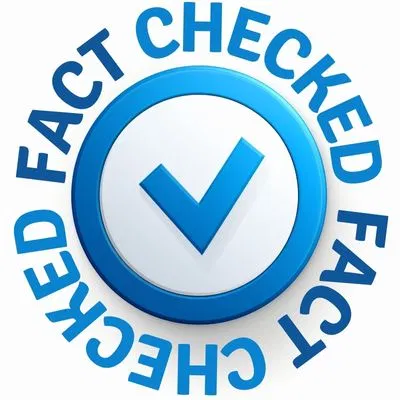How To Optimize Your Metadata For Thriving SEO

Published February 28, 2024
In the expansive digital realm, the battle for online visibility persists. One element emerges as crucial for success: search engine optimization (SEO). The fate of your website in the virtual space relies on its visibility, and among the myriad of SEO tactics, metadata often goes undervalued.
In this article, we’ll explore metadata—the unsung heroes of the digital world. Let’s uncover how metadata optimization can pave the way for SEO success.
Exploring Metadata And Its Significance In SEO
If you’re wondering—what is metadata SEO? Metadata is data that offers context about other data. It helps in interpreting and organizing it. In web pages, metadata encompasses crucial elements such as the title tag, meta description, and keywords. These components guide search engines to comprehend the content presented on the page. They influence the visibility and ranking of the website.
With this in mind, understanding and optimizing metadata is vital for effective SEO. They decide your site’s appearance in search engine results pages (SERPs). They also affect user engagement metrics, like click-through rates (CTR).
Key Elements Of Metadata
Understanding essential metadata is crucial. It helps with data management and boosts efficiency. Below are the fundamental components of metadata to ensure effective metadata optimization.
1. Title Tag/Meta Tags
The title tag is an essential part of metadata SEO. It’s vital for search engine optimization and user experience. It acts as your webpage’s initial impression in search results, impacting click-through rates and visibility. Creating a concise, descriptive title closely related to your content is crucial. It captures the audience’s attention and improves site performance.

2. Meta Description
The meta description provides a concise overview. It holds a pivotal role in search engine outcomes. You’ll find it under the title, acting as a compelling teaser, luring prospective visitors to check out your site. In most cases, it presents a preview of the content.
Crafting a good meta description can engage and inform. It can affect the click-through rate. In no time, it helps in driving traffic to your site effectively.
3. Meta Keywords
The content of your webpage intricately connects with the terms or phrases used. Although Google no longer factors in meta keywords for ranking, some search engines still use them for indexing. Prioritizing relevant and descriptive content is vital for enhancing your site’s visibility. It also helps engage users effectively in SEO.
4. Header Tags (H1, H2, H3)
Header tags are vital for efficiently organizing your content. By utilizing the proper header tags, you enhance user readability and bolster SEO. Search engines rely on header tags. The tags show the hierarchy and critical points of your content. They help give users more precise results. A good header tag system can improve your online content’s visibility and accessibility.
5. Alt Text For Images
Alt text or alternative text serves as a descriptive tag for images featured on your website. This descriptive snippet helps search engines understand the image content. It also enhances accessibility for people who have visual impairments. With detailed alt text, you ensure that all users can comprehend the site’s visuals. This is true regardless of their visual ability.

Key Practices For Optimizing Metadata
If you aim to enhance SEO metadata for success, understanding and implementing these critical practices is crucial. Strategically optimize metadata to boost your site’s search engine visibility. It’ll attract organic traffic to your pages.
1. Research And Use Relevant Keywords
Using and placing relevant keywords in your metadata is vital. It helps boost your site’s visibility on search engines. Use keywords that match your content. They attract more organic traffic and increase the likelihood of your site ranking higher on search engines.
Focusing on keyword optimization maximizes this approach. It boosts your site’s discoverability and improves the user experience. You provide content that directly caters to their needs and interests.
2. Write Compelling Titles That Capture Attention
The title tag of your webpage is the initial impression for potential visitors in search results. Crafting it to be engaging, relevant, and compelling is vital. This will seize their interest and boost clicks. In the end, it’ll increase traffic to your site.

3. Create Engaging Meta Descriptions
Like the title tag, the meta description draws users to your webpage. It must be captivating and informative, providing a brief yet exciting overview of the content. A good meta description makes people more likely to click on your site. It also makes them more likely to interact with your content.
4. Use Header Tags Strategically
Use header tags to organize your content systematically. Structuring your content logically with headers enhances readability and SEO. Adding relevant keywords in these headers helps search engines understand your content. This can boost your website’s visibility.
5. Optimize Images With Descriptive Alt Text
Integrating informative alt text for images is essential to digital content creation. The practice helps search engines understand your content. It also helps those with visual impairments access it. Doing so allows everyone to interact with your content smoothly and meaningfully.
6. Keep Length In Check
To optimize search result display, ensure your title tags and meta descriptions adhere to recommended character limits. Keeping title tags under 60 characters and meta descriptions under 160 characters enhances visibility. It also boosts user engagement on search engine results pages (SERPs).
7. Avoid Keyword Stuffing
It’s crucial to include appropriate keywords in your metadata and SEO as it significantly improves your visibility on search engines. However, it’s equally important to steer clear of excessive keyword usage. It’s a tactic referred to as keyword stuffing. Websites that engage in keyword stuffing face penalties from search engines. With this in mind, it’s crucial to employ a strategic approach and verify that your keyword integration seamlessly aligns with your content.

Unleashing SEO Success With Masterful Metadata Optimization
Today, metadata optimization plays a crucial role in the realm of SEO. It has the power to enhance your site’s visibility and influence. Improving your site’s ranking in search engines involves understanding key components and implementing best practices. It’s time to take the lead, implement these tactics, and watch your website rise to new heights in the digital world. Start optimizing your metadata today and let your online presence shine brighter.
Hire The Digital Marketing Experts
We take online businesses and turn them into online empires by employing smart digital marketing strategies. Our team of experts are trained in a myriad of marketing skill including SEO to help you rank higher in search results, and ad management to ensure your message gets seen by the people you want. Need a business website that attracts business? We also specialize in website design and online sales optimization to help your business grow like never before.

This Content Has Been Reviewed For Accuracy By Experts
Our internal team of experts has fact-checked this content. Learn more about the editorial standard for our website here.

About The Author
Hi, I’m Corinne Grace! As an experienced writer holding a bachelor’s degree from Riverside College, I excel in creating articles supported by thorough research. Specializing in a wide range of topics like marketing and law, I craft engaging stories that connect with my readers. I continuously work to refine my skills to adapt to the ever-changing digital world.



